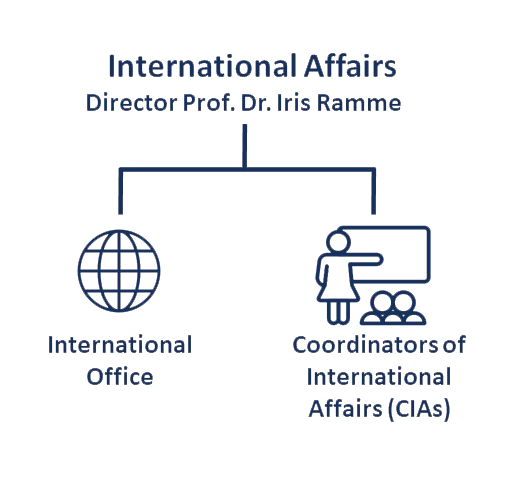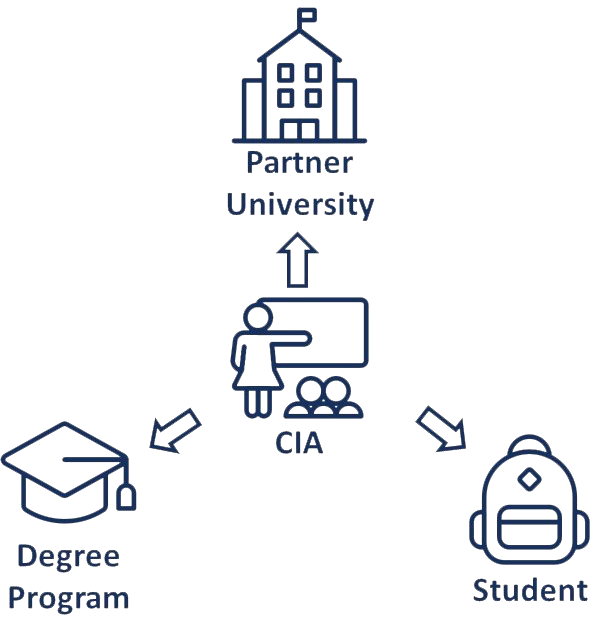International Affairs

Strategy and Objectives
Internationalization is a key component of NGU's strategy.
Through targeted collaborations and the exchange of students, faculty members, and researchers, we foster international dialogue and strengthen our students’ intercultural competence. To drive internationalization in a focused manner, we rely on the following strategic measures:
- Expanding and maintaining exchange partnerships with institutions abroad
- Outgoing: Increasing the number of qualified students gaining international experience
- Incoming: Increasing the number of qualified students from international partner universities
- Increasing the enrollment of qualified international students in full-time degree programs
- Internationalizing learning content within curricula
- Promoting intercultural competence
- Enhancing the internationalization of staff in teaching, research, and administration

Coordinators for International Affairs
The Coordinators for International Affairs (CIAs) are professors appointed by the Rector to represent their degree programs within their faculties. They serve as the link between their degree programs and the partner universities that host students from these programs.
In close cooperation with the Director of International Affairs and in coordination with the International Office, the CIAs are responsible for:
- Strategic selection, development, and maintenance of relationships with partner universities
- Negotiations with partner universities on contracts, tuition fees, exchange quotas, course offerings, research collaborations, curriculum development, lecturer exchanges, and short-term programs
- Creating optimal conditions for an academically high-quality semester abroad, in coordination with the Dean of Studies – including adapting the study and examination regulations (SPOs), implementing I@H projects, International Weeks, excursions, and increasing courses taught in English.
- Creation of Learning Agreements, including grade conversion, general degree program rules, and course assignments. The selection of courses is based on learning objectives, ECTS, and requirements of the partner university.
- Invitation and supervision of international guests and guest lecturers
- Participation in selection committees for the allocation of study places at partner universities

Director of International Affairs

Coordinators of International Affairs (CIAs)













